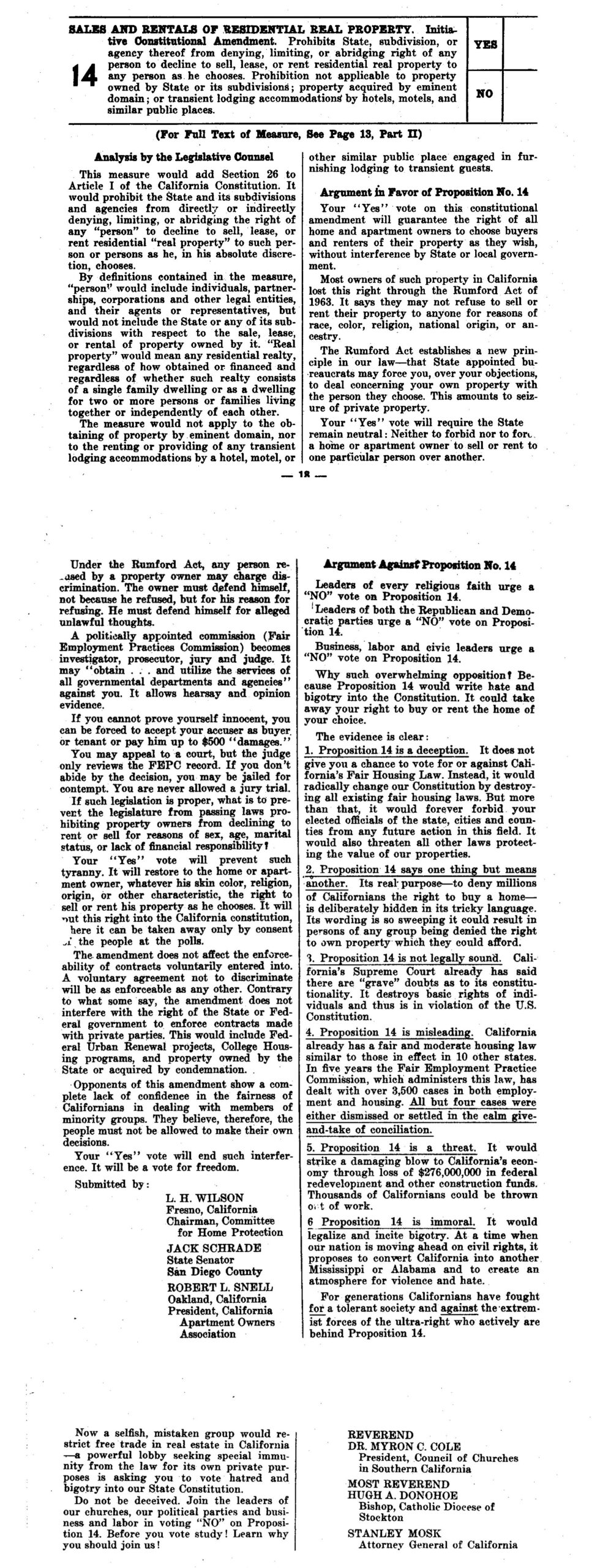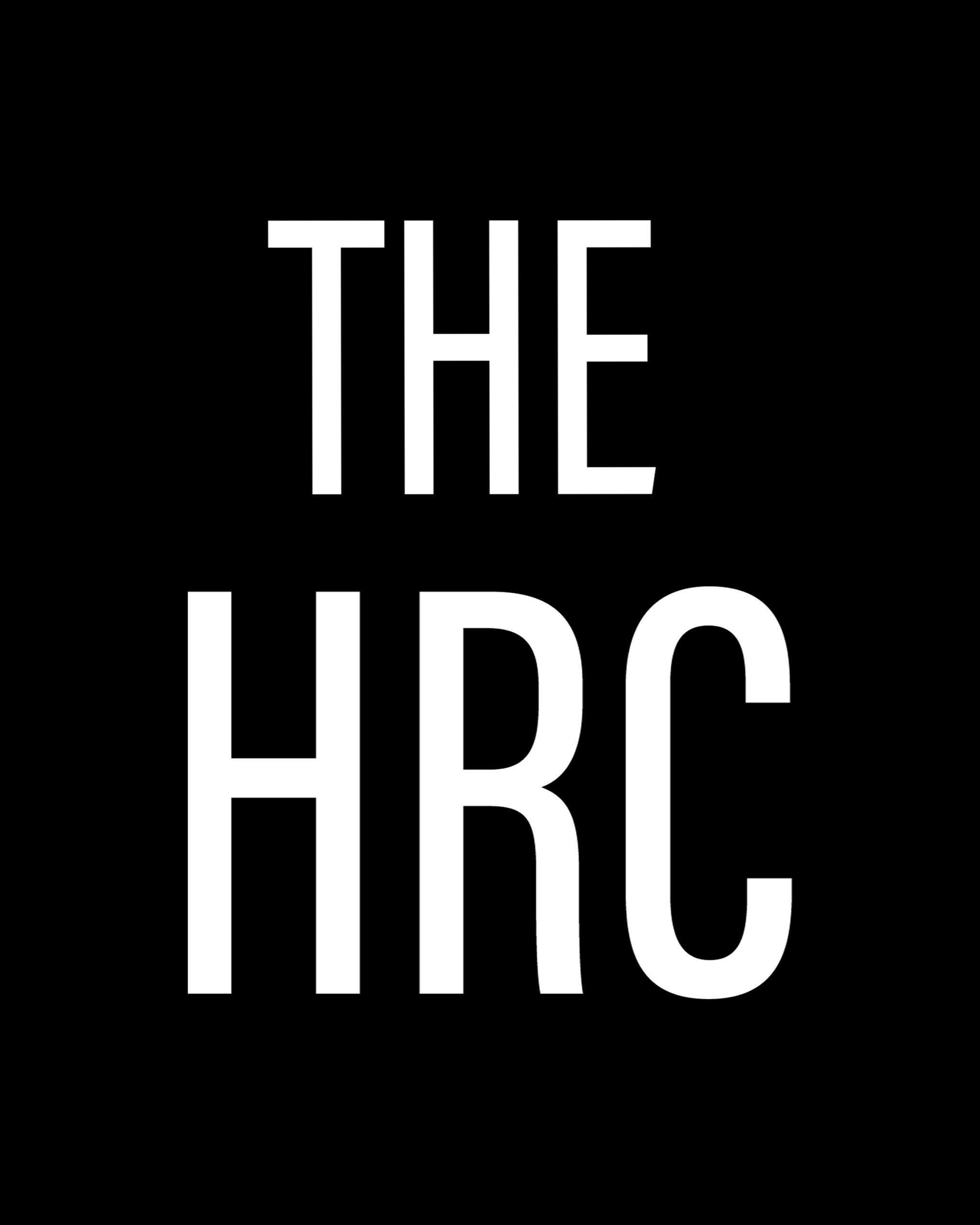Before 1938 – Buying on Contract – Covenants – Covenant Database – East Bakersfield
Education – Eminent Domain – Moving into a Neighborhood – Neighborhoods
Public Housing – Resources – Rumford Fair Housing Act – Suburban Expansion – Zoning

William Byron Rumford (b. 1908 – d. 1986) was the first African American elected to state office in California. He served as a California State Assemblyman for the 17th District from 1949- 1967. Although Rumford is most known for his career in politics, he was a pharmacist by profession and owned his own business, Rumford’s Pharmacy, in Berkeley. His political career focused on legislation about California fair housing, a higher minimum wage, and reducing unemployment, especially for African American youth.
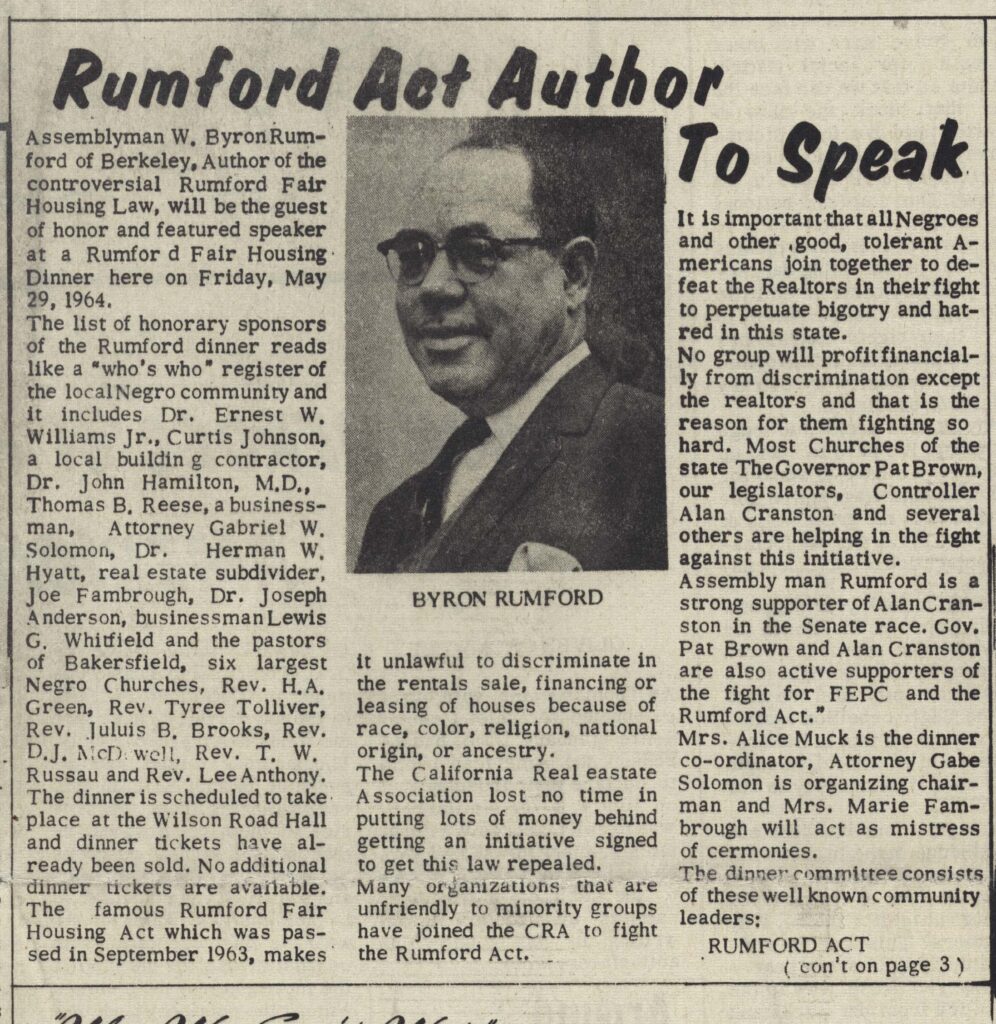
“The Famous Rumford Fair Housing Act, which was passed in September 1963, makes it unlawful to discriminate in the rentals, sale, financing, or leasing or housing because of race, color, religion, national origin, or ancestry. The California Real Estate Association lost no time in putting money behind getting the initiative signed to get this law repealed.”
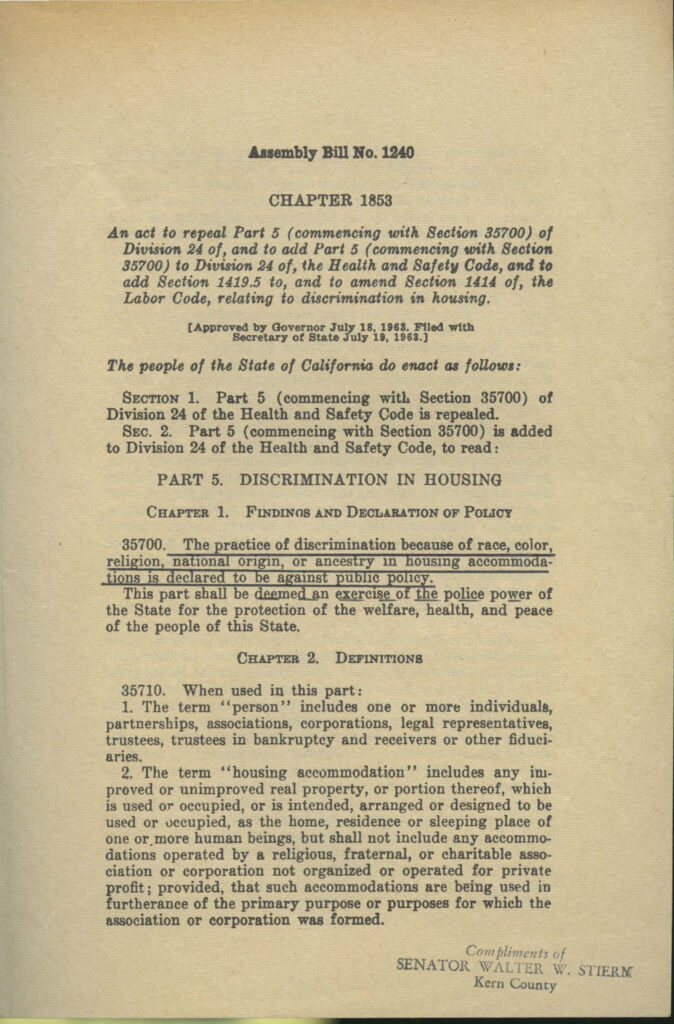
Rumford successfully passed the Rumford Fair Housing Act in 1963, but it was repealed by Proposition 14 in 1964. The Rumford Act law prohibited discrimination in all housing assisted by public financing, and private housing, and increased the membership of the Fair Employment Practice Commission. The Commission was responsible to investigate and hear complaints of discrimination. The Rumford Act was supported by various senators, including Walter W. Stiern. “Finding aid to the William Byron Rumford papers, 1934-1982.” Online Archive of California, Accessed 30 January 2020.
In 1964, the California Real Estate Association (CREA) sponsored Proposition 14. They named it the “CREA Amendment,” supporting housing discrimination by overturning the Rumford Fair Housing Act.

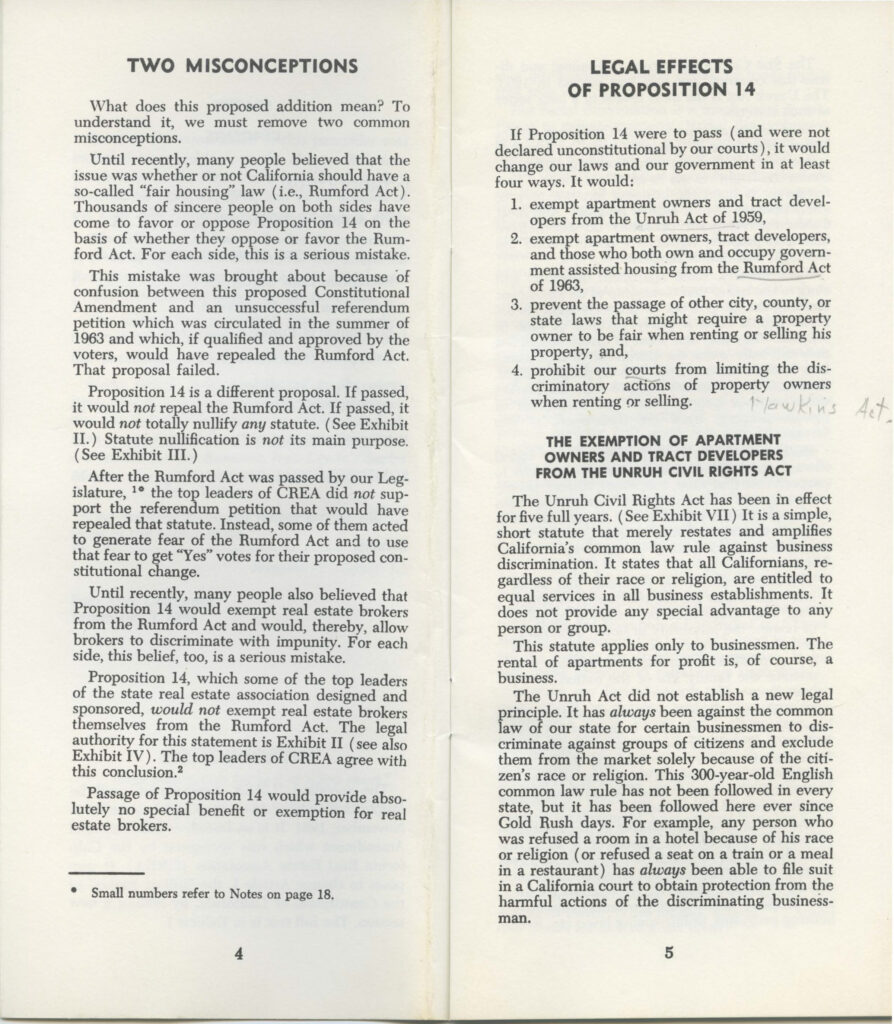
“If Proposition 14 were to pass… it would change our laws that our government in at least four ways. It would… 4. prohibit our courts from limiting the discriminatory actions of property owners when renting or selling.”
Petitions were circulated to, “Neither the state nor any subdivision or agency thereof shall deny, limit or abridge, directly or indirectly, the right of any persons, who is willing or desires to sell, lease or rent any part of his real property, to decline or sell, lease or rent such properties, to such person or persons as he, in his absolute discretion, chooses.”
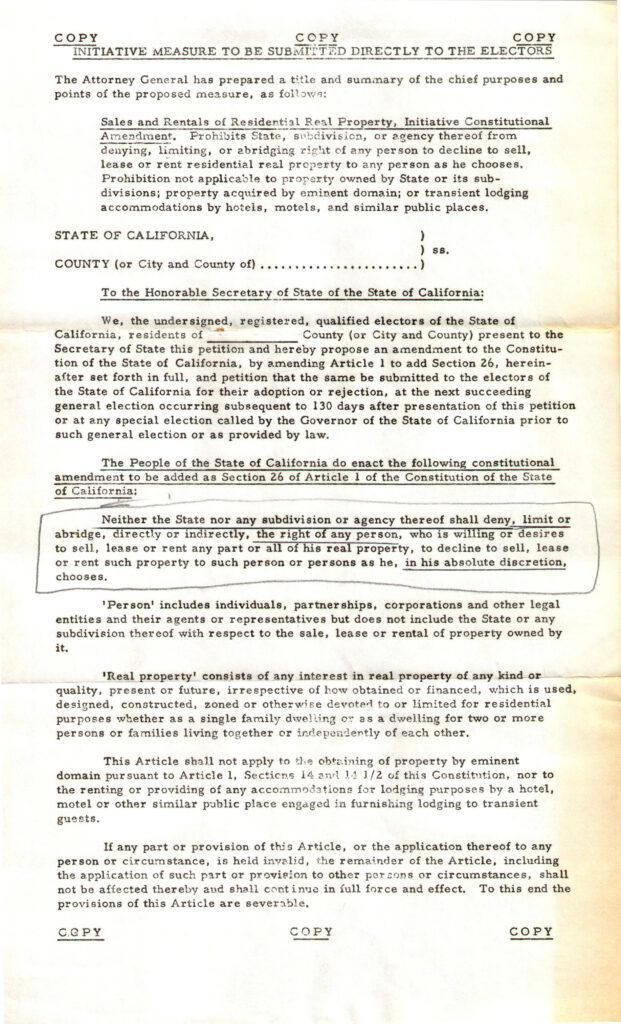
Proposition 14 of 1964 repealed the act. White voters had responded to keep segregation alive and supported the repeal of the act. Proposition 14, UC Hastings, 1964
“Your ‘yes’ vote on this constitutional amendment will guarantee the right of all home and apartment owners to choose buyers and renters of their property as they wish, without interference by State or local government. Most owners of such property in California lost this right through the Rumford Act of 1963. It says they may not refuse to sell or rent their property to anyone for the reasons of race, color, religion, national origin, or ancestry.” Proposition 14 was passed in 1964. It was not until 1968, with the Fair Housing Act, that fair housing was made legal. Lawsuits and advocacy continue to this day.
